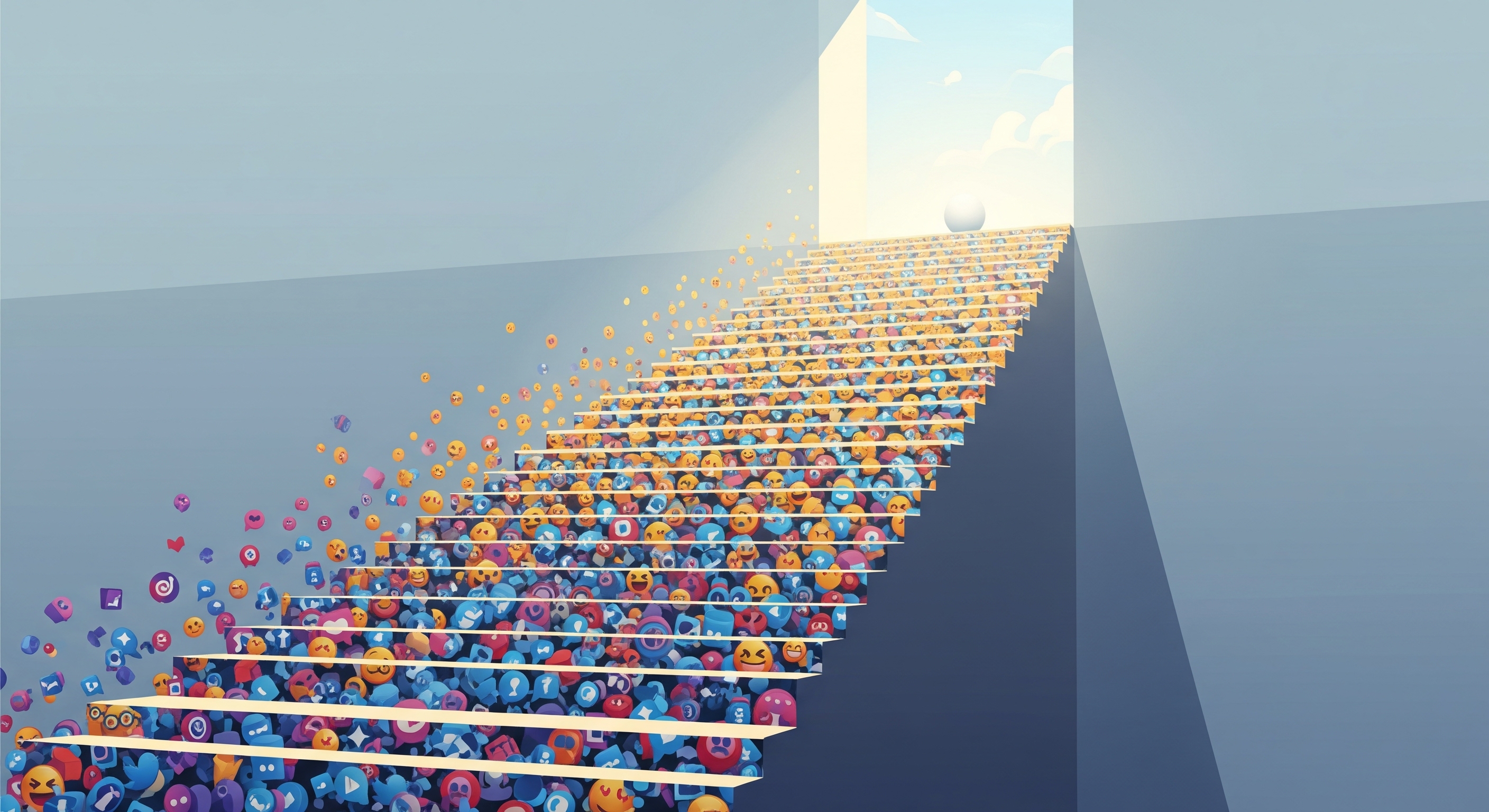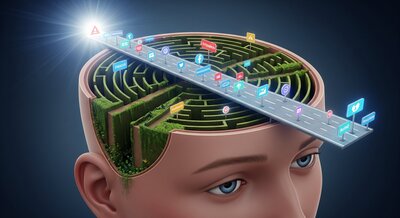We've all been there.
You're staring at a screen. You have a goal, a deadline, a task that needs doing. It's important.
But so is that other tab. And that notification that just buzzed. And the sudden, overwhelming urge to see what's happening on Twitter, Reddit, or anywhere but here.
You know you need to "rewire" your brain for focus.
You get the concept: our brains, conditioned by a relentless firehose of digital stimuli, have been trained for distraction.
The problem is, we often treat fixing this like flipping a switch.
We search for that one big life hack, that one perfect app, that one monumental act of willpower that will instantly transform us into a laser-focused productivity machine.
But that's not how it works. That's like expecting to walk into a gym for the first time, decide you want to be strong, and immediately lift a personal best. It's a fantasy.
The truth is quieter, less glamorous, and infinitely more powerful.
Rewiring your brain isn't a single, heroic act.
It's a gradual, almost invisible process built on a foundation of countless tiny decisions.
It's about understanding the power of small wins, where each micro-choice to resist distraction and return to your work is a single rep for your focus muscles.
The Myth of the Grand Gesture
We love the idea of the grand gesture.
We're drawn to stories of people who quit social media cold turkey, went on a month-long digital detox, or architected a productivity system so complex it could run a small country.
These stories are inspiring, but they also set us up for failure. They reinforce the idea that focus is a destination you arrive at through one giant leap.
When our own grand gestures inevitably fall short—when we reinstall Instagram after three days or our perfect system crumbles by Wednesday—we feel like failures. We conclude that we're just not "good at focusing."
But what if the entire premise is wrong? What if focus isn't a switch to be flipped, but a path to be built? You don't create a path by placing one giant, perfect slab of concrete. You create it by laying down one small, ordinary stone at a time. Day after day.
That's what these micro-choices are. They are the small stones in your path to focus.
Your Brain on "Just One Rep"
Every time you feel that pull—the phantom itch to open a new tab, check your phone, or drift away from the task at hand—you stand at a fork in the road.
Path A: You give in. You click the tab. You pick up the phone. You grant the distraction its wish. In neurological terms, you've just strengthened the pathway for distraction. You've rewarded the part of your brain that seeks novelty and immediate gratification. You've done one more rep for the 'distraction' muscle.
Path B: You notice the urge, acknowledge it, and consciously let it go. You gently turn your attention back to the spreadsheet, the document, the line of code. It's not a fight. It's a gentle, firm return. In that moment, you have done something profound. You have completed a single, perfect rep for your 'focus' muscle. You've sent a clear signal to your brain: "No, not that pathway. This one."
This micro-decision might feel insignificant.
It won't trigger a lightning bolt of insight or a surge of motivation.
Nothing in your world will have visibly changed. But inside your brain, a tiny shift has occurred. A neural connection was reinforced. A small win was logged.
The Compounding Power of Micro-Choices
One rep at the gym doesn't build a bicep.
One healthy meal doesn't make you a picture of health.
And one micro-choice to return to your work doesn't instantly grant you monk-like focus.
Its power lies in accumulation.
This is the principle of compounding, applied to your attention.
- Day 1: You make five of these micro-choices. You resist the urge to check email five times. You close a distracting YouTube tab once. It feels difficult, almost pointless.
- Day 7: You've now logged dozens of these reps. The initial urge to get distracted is still there, but maybe it's a little less intense. The act of returning to your work feels slightly less like a monumental effort. The path is a little less overgrown.
- Day 30: You've performed hundreds of these focus reps. The distraction pathway, now used less frequently, begins to weaken. The focus pathway, reinforced daily, becomes more of a default. You might find yourself automatically closing a distracting tab without a conscious internal battle.
Your brain is beginning to understand the new rules. It's beginning to rewire.
This is how lasting change is made. Not through a single weekend of herculean effort, but through the quiet, unsexy, consistent practice of making the right choice, the small choice, over and over again. Each decision is a vote for your future, more focused self.
What Do These Micro-Choices Look Like?
These aren't grand, life-altering decisions. They are the small, everyday choices that happen in the space of a single second.
- It's the decision to close the email tab immediately after you've sent the necessary message, rather than leaving it open as a potential source of distraction.
- It's the choice to put your phone in another room for a 30-minute work block. Not forever, just for now.
- It's the act of noticing your mind has wandered while reading a report, and gently, without judgment, bringing it back to the sentence you were on.
- It's choosing to work on a task for just five minutes when you feel overwhelmed, just to get the ball rolling.
- It's the decision to use a tool like Bloxta to break the cycle, as a conscious choice to remove temptation and make the right micro-decision the easy decision.
Stop looking for the one big fix.
Start looking for the next small win. The battle for your focus won't be won in a single, glorious charge. It will be won in the quiet trenches of your daily work, one tiny, deliberate, and powerful choice at a time. Each one is a rep.
Each one is a stone in the path. And soon, you'll find that path is taking you exactly where you want to go.
The path to macro-focus is paved with micro-habits. Start laying your stones.



